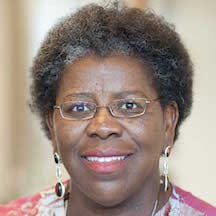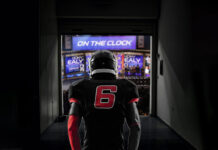by Angela Mae Kupenda

Today a conference panel of people of color who are legal academics was pondering what our professorial role is today, especially in the midst of the post-2016 political crisis. Admittedly, this political crisis is, for many of us, also a personal crisis. For Black people, as it has been said, the personal is political and the political is personal.
Some of the law professors were wondering whether they should leave academics all together and take on a more activist role. Like many of us, they are pondering what more they can do in their lifetimes to make America the America it has never been, to paraphrase the late great Langston Hughes. In his poem, “Let American be America Again,” Hughes writes:
Oh let America be America again
The land that never has been yet
And yet must be
The land where every man is free
The land that’s mine-the poor man’s, Indian’s, Negro’s, ME.
As we experience America’s political, racial, gender, class, personal etc. crises, academics who want to further equality in the land have a very critical and continuing role. Our role is that of First Responders. In physical crises, like a fire, First Responders play an important role. They intentionally put themselves in harm’s way to fulfill an overarching purpose of helping others, even at their own risk. They strategically prepare, train, and work for years to prepare for this role in the midst of crisis.
As academics who care about equality, we are First Responders. We preceded even changes in the law. Consider that academics Kenneth and Mamie Clark conducted the Doll Study and other sociological research that served as a basis for the overruling of Plessy v. Ferguson, and Brown v. Board of Education. Professor Kimberle Crenshaw, with her intersectionality theory, called attention to existence of women of color, standing at the intersection of race and gender. The law and policies are still trying to catch up.
So, even in the midst of all of the bias that even professors face in America, there is still a critical role for Black professors, other professors of color, and all academics who believe in further equality. Like other first responders, our role places us at risk. Just read the book Presumed Incompetent: The Intersections of Race and Class for Women in Academia (Utah State University Press, 2012) about the experiences of women of color in academia.
Yet, we persevere, we press on.. We must. It is as if we took an oath as we became invested in the overarching goals of equality and how it is entwined with the values of having an educated, fully informed, and wide awake society. As First Responder Langston Hughes stated,
O, yes, I say it plain,
America never was America to me.
And yet I swear this oath
American will be!”
And, we can help that happen as academics who embrace our role as First Responders.
Professor Kupenda is a professor at the Mississippi College School of Law in Jackson. She is a summa cum laude graduate of Jackson State University in Mississippi and holds a master’s degree from The Wharton School at the University of Pennsylvania. Professor Kupenda finished first in her class at the Mississippi College School of Law.












Jahnes love.
This is a very interesting article. Profesor Kupenda outlines a very difficult journey that black academics must take to decide what role they should play in the changing times. Still, I think that Black Academics who are engaged in teaching, administration or other roles in the Academy must be First Responders to the students in their classes and who attend their Colleges or Universities. I have been in Academia since 1986 and I also attended UPenn where Professor Kupenda earned her MA, and I have never been mentored or “saved” by a Black Professor. I was never seen as an attractive candidate by black professors and administrators for various reasons, and my Ethnicity as an Ayiti descent along with my working-class background was held against me. So, Black Academic First Responders must be accountable for the folks in their environment before they can run and save others in the Outside. Blessed love.